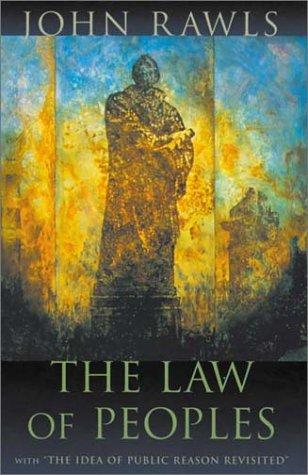Orlion reviewed The Law of Peoples by John Rawls
Review of 'The Law of Peoples' on 'Goodreads'
4 stars
This is a collection of two essays, one about the framework of how societies in the international community could interact with each other, and the other on Public Reason, which we could also call public political discourse/debate.
Rawls draws a lot from his previous work and assumes that the reader will have some idea about concepts such as "justice as fairness", political liberalism, Veil of Ignorance, and more! I've had some exposure to Rawls from a college course many ages ago, and though I could have done better I felt at least with my minimal knowledge I was able to follow most of Rawls' discussion.
Rawls is not too concerned with coming up with specifics or set up the One True, Reasonable, and Right way to do things. He is instead concerned with how societies (or Peoples, as he refers to them) with different ideas of the One True, Reasonable, …
This is a collection of two essays, one about the framework of how societies in the international community could interact with each other, and the other on Public Reason, which we could also call public political discourse/debate.
Rawls draws a lot from his previous work and assumes that the reader will have some idea about concepts such as "justice as fairness", political liberalism, Veil of Ignorance, and more! I've had some exposure to Rawls from a college course many ages ago, and though I could have done better I felt at least with my minimal knowledge I was able to follow most of Rawls' discussion.
Rawls is not too concerned with coming up with specifics or set up the One True, Reasonable, and Right way to do things. He is instead concerned with how societies (or Peoples, as he refers to them) with different ideas of the One True, Reasonable, and Right Way to Do Things ought to interact with each other, and what concerns they should have when setting up International law. This includes what type of societies would be able to interact peacefully in a global community, what should be done with States that do not follow the Law of Peoples as set forth by this global community, and also the global community's obligations towards burdened societies.
Ultimately, I found this book instructive, in particular since it provides me with a framework through which to view the Spanish Civil War and the failure of the Second Spanish Republic. Though I doubt this is what Rawls had in mind, it is how I'm going to apply many of the ideas I encountered in this book.

